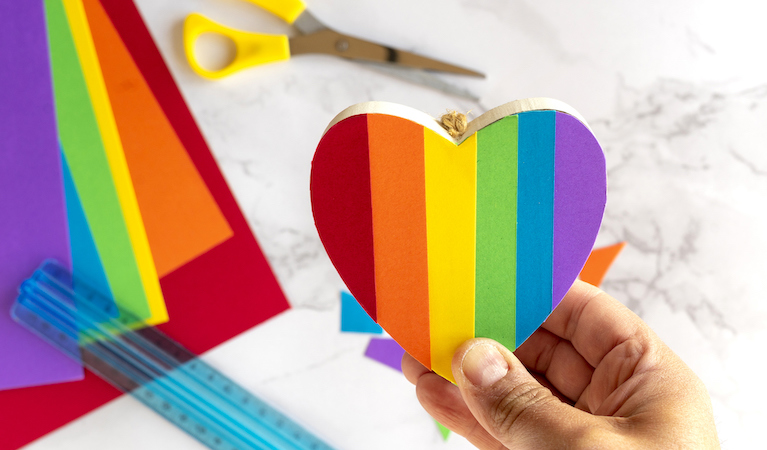Warning: Fraudsters are using our brand to target individuals. Loans 2 Go will never ask for upfront fees. If affected, please contact us & learn more here.
We use cookies to improve your experience on our websites and to analyse how and when our sites are used. By clicking 'Accept all & continue' you're agreeing to our use of cookies. To learn more about the cookies we use, you can read our cookie policy.
Opt out of non-essential cookiesWarning: Fraudsters are using our brand to target individuals. Loans 2 Go will never ask for upfront fees. If affected, please contact us & learn more here.

Do you have any savings?
If not, you’re not alone. An estimated half of adults in the UK have £1000 or less in savings, and almost a quarter have no savings at all.
We tend to think of savings as money to use either for major purchases such as a home, car or holiday, or for little luxuries such as special treats, events and celebrations.
But savings are also a buffer in any kind of emergency. Financial experts recommend having savings to cover at least three months living expenses, but just over half of us – 27 million – would not be able to live off their savings for more than one month.
Even if you didn’t have to fall back on savings to live off, it’s still a good idea to build up an emergency fund for other situations such as:
But how can you start to build up an emergency fund in case anything like this should happen to you? It can seem like a daunting prospect, but the best thing to do is to start very small. Let’s take a look at five ways you could start to build your emergency fund.
As with anything, the first step is the hardest. But once you have taken that first step, your emergency fund is up and running.
So aim to open a new savings account. There are a lot of good deals around for savers at the moment, so you have plenty of choice. Look for an account that pays a good rate of interest and also enables you to get your money out when you need it. A good compromise could be a savings account that enables you to make a limited number of withdrawals each year, perhaps two or three. This would encourage you to keep your money in the account, unless you really need it, but would enable you to get it quickly in the event of an emergency.
Once you have set up your savings account, start putting money into it every week or month. It really doesn’t matter how small a sum of money this is. At this stage, the most important thing is to establish the habit of saving.
You may want to set up a regular direct debit to pay money into the account. Treat this direct debit just like any other bill, and once it has been paid into your savings account think of the money as gone, rather than being tempted to take it back out again.
As well as a regular direct debit, also try to supplement your direct debit by saving regularly in other ways. For example, if you use cash, put any loose change – such as coins 10p and under – into a jar at the end of every day. Then when the jar is full, pay it into a bank. You can also do this with most banks easily online by setting up a Save the Change system in which the bank will round up all your transactions to the nearest pound and pay the difference into a savings account.
Be as creative as you like to think of ways to regularly save small amounts of money here and there and keep topping up your emergency fund.
Another really good way to top up your emergency fund is to commit to saving at least part of any unexpected money you receive. For example, a gift or win or bonus. It’s great to come into a bit of extra money, but if it is unexpected then in theory you won’t miss it if it goes straight into your emergency fund.
If the idea of putting aside any extra money seems too difficult, then why not commit in advance to put away half of any unexpected money into your emergency fund? That way, it really will be the gift that keeps on giving.
How about having a no-spend day once a week, or perhaps even a no-spend week once a month? Think of any non-essential that you tend to spend money on regularly then do without that item for a day or week of your choice. For example:
Even just giving up one of the above for one day could save a few pounds, which you can then put into your emergency fund.
If you’ve ever been involved in fundraising for a good cause, you’ll know the wide variety of things that you can do to raise those funds, and also the buzz that comes when you see the money start to come in.
So why not do a bit of fundraising for your emergency fund? Set yourself a timescale and a target and find new and creative ways to bring in some extra money that you will then put straight into your emergency fund.
A few ideas to get you started are:
Research from eBay found the average household has 42 unused items which could be sold for up to £2600! You may think that this may not be the case for you, but you would be surprised at what you can sell when you put your mind to it.
You can sell unwanted goods online, either on sites such as eBay or through websites that will accept boxes of goods and give you a price for them – such as Vintage Cash Cow, Music Magpie and WeBuyBooks.
Also look for local opportunities to sell goods, such as car boot or garage sales.
If you have any kind of creative talent, you could consider making items to sell either locally or more widely on sites such as Etsy. Examples include clothing, jewellery, accessories, household decorative items, cards or food items.
Time is money as they say, and many people would be willing to pay for help with various aspects of domestic life such as babysitting, pet care, computer or admin help, cleaning, DIY or odd jobs. If you have a bit of time on your hands, and skills that others would be happy to pay for, it’s win-win!
So if you want to start building an emergency fund, we hope that the above ideas will help you to get started.
In the meantime, if you and your family do run into any kind of emergency situation and need a financial boost, remember that Loans 2 Go offers emergency loans that may be able to help.
For more useful financial and lifestyle tips, visit us here again soon at Loans 2 Go.











Loans 2 Go is a trading name of Loans 2 Go Limited, registered in England and Wales. Company number 4519020. ICO registration number Z720743X. Registered address: Bridge Studios, 34a Deodar Road, London SW15 2NN. Authorised and regulated by the Financial Conduct Authority (FRN 679836). *Payment by bank transfer once application approved, subject to our working hours of Monday to Friday: 8am to 8pm and Saturday 8am to 5pm. All loans are subject to eligibility & affordability criteria. Max APR 815.6%.
As a lender, we pay commissions to credit brokers or other intermediaries who introduce customers to us. The commission we pay varies depending on the broker, the product offered, and the terms agreed with the broker. This payment is made by us and does not affect the interest rate, terms, or total cost of your loan.
© 2024 Loans 2 Go. All rights reserved.